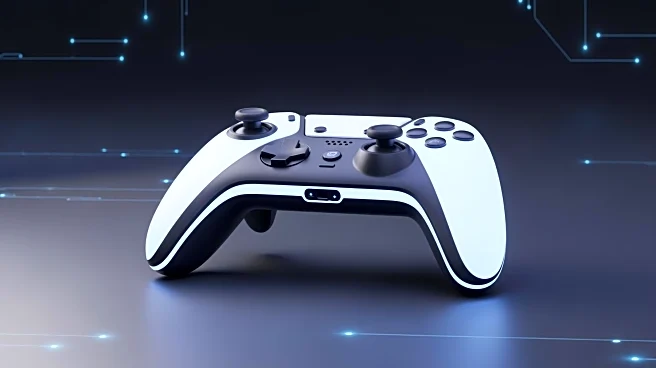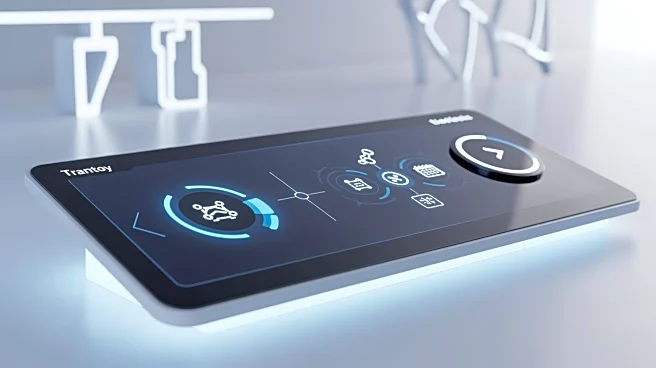What's Happening?
Valve has announced the launch of its second-generation Steam Controller, designed to offer greater flexibility and customization for gamers. The new controller, which is set to be released in early 2026,
features Bluetooth connectivity and is compatible with any device running Steam, including Valve's new Steam Machine PC and Steam Frame VR headset. It includes a puck that serves as a low-latency wireless connector and charging station. The controller is equipped with magnetic, drift-resistant sticks, capacitive sensors for grip detection, and high output haptic motors. Valve aims to make the price competitive with other controllers featuring advanced inputs.
Why It's Important?
The introduction of Valve's second-generation Steam Controller is significant for the gaming industry, as it promises enhanced user experience through its customizable features. This development could influence the design and functionality of future gaming controllers, pushing competitors like Sony, Microsoft, and Nintendo to innovate further. The controller's advanced inputs and drift-resistant sticks address common issues faced by gamers, potentially increasing Valve's market share in the gaming hardware sector. Additionally, the controller's compatibility with various devices may attract a broader audience, enhancing Valve's ecosystem.
What's Next?
Valve plans to release the new Steam Controller in early 2026, with pricing details yet to be announced. As the launch approaches, gamers and industry analysts will likely scrutinize the controller's performance and compare it to existing models from other major brands. Valve's strategy to offer competitive pricing could lead to increased adoption among gamers, potentially influencing the company's future product development and marketing strategies. Stakeholders will be watching closely to see how the controller performs in real-world scenarios and whether it meets the expectations set by its innovative features.
Beyond the Headlines
The second-generation Steam Controller's introduction may have broader implications for gaming culture and accessibility. Its customizable features could empower gamers with disabilities to tailor controls to their needs, promoting inclusivity within the gaming community. Furthermore, the controller's advanced technology might inspire new gaming experiences and genres, as developers explore its capabilities. Valve's commitment to user-replaceable batteries also reflects a growing trend towards sustainability in tech products, aligning with consumer demand for environmentally friendly options.









